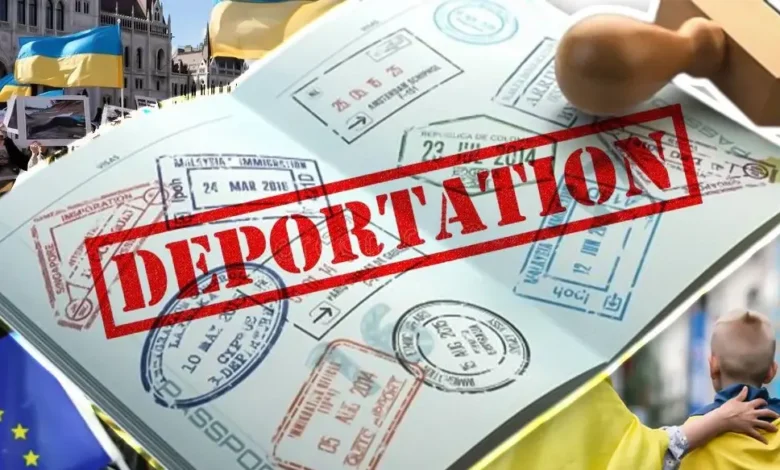For what violations can Ukrainian refugees be deported from Germany

The war in Ukraine forced millions of our citizens to seek refuge in other countries, escaping shelling, destruction and threats to life. One of the countries that has become a second home for millions of Ukrainians is Germany. She provided temporary protection, housing, social assistance, access to medicine and education. However, living in another country requires not only adaptation, but also strict adherence to local rules and laws. Violation of these rules can lead to deportation – forced return to the country of origin.
For what Ukrainians can be deported from Germany
In order to stay in Germany legally, Ukrainians must obtain a residence permit. In case of refusal to grant asylum, the person is obliged to leave the country within a specified period, which can be up to six months. Importantly, refugees have the right to challenge the refusal by filing an appeal. A person can legally stay in Germany until the case is completed.
However, there are a number of serious violations that can lead to forced deportation:
- Violation of border crossing rules or violation of customs control.
- Forgery of documents.
- Entry of a person into the AZR list (National Register of Persons Undesirable for Entry).
- Conviction in the EU for a crime punishable by imprisonment for a term of one year or more.
- A threat to public order or the internal security of the European Union.
- Assistance in illegal immigration of other persons to Germany.
If a decision on deportation is received, the person is entered in the AZR register and the Schengen Information System. This automatically means a ban on entry to all Schengen countries.
How deportation from Germany takes place
Two departments are responsible for organizing deportations, the Ausländerbehörde (Foreigners’ Office) and the Bundesamt für Migration und Flüchtlinge (BAMF) (Federal Office for Migration and Refugees). If a person refuses to leave the country voluntarily, the authorities can involve the federal police. In cases where there is a risk of avoiding deportation, the court can make a decision on deportation arrest for up to 18 months.
During deportation, a person may be fingerprinted and, if necessary, placed in a special receiver. It is important that deportation involves returning to the country of origin and not to another state.
At the same time, there are circumstances under which deportation can be postponed:
- Serious health problems, confirmed by medical documents.
- War or armed conflict in the country of origin.
- Lack of identity documents.
- Refusal of the country of origin to accept the citizen.
In case of disagreement with the decision on deportation, the Ukrainian has the right to contact a lawyer and challenge the decision in court. Practice shows that in the case of a competently prepared legal position, deportation can be canceled or postponed.
How Ukrainians can avoid deportation
To avoid deportation, Ukrainians staying in Germany must follow several important rules:
- Monitor the validity period of your documents and renew them in a timely manner.
- Fulfill all requirements of migration legislation.
- To comply with the terms of the program under which they arrived in the country.
- In case of problems, seek legal help in a timely manner.
In addition, Ukrainians are recommended to participate in social integration programs, learn the German language, and build positive relationships in the community. This not only helps to adapt, but also demonstrates a desire to be part of the local community.
Today, it is important to remember that temporary protection is an opportunity that requires responsibility. Every Ukrainian, being in Germany, should be aware of his rights and obligations, so as not to lose the chance for a safe future. Compliance with laws and regulations is the key to maintaining temporary protection and safety abroad.





